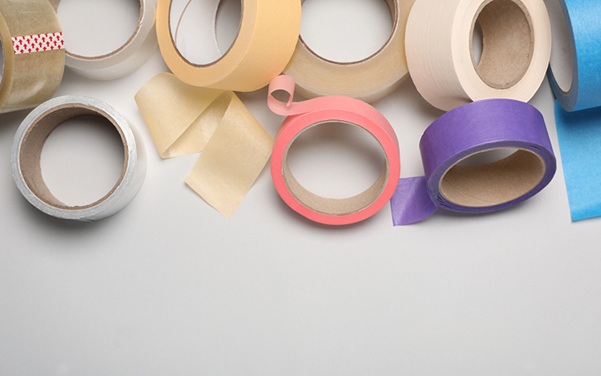Speed and volume often take centre stage in supply chain operations, but reliability is what holds everything together. Packaging is a frontline concern, yet one of its most critical elements is frequently underestimated: tape.
Beyond just an adhesive strip, the right tape ensures structural security, product protection, and delivery success. That said, businesses that acquire wholesale packaging supplies without carefully selecting tapes risk exposing their entire logistics process to failure.
Explore how using the wrong tape can quietly, and catastrophically, undermine your packaging supply chain.
Weak Adhesion Equals Weak Security
Package integrity becomes compromised when the adhesive strength of a tape is insufficient. Boxes may open during transit, exposing goods to physical damage, contamination, or loss. This instance is particularly risky for shipments stacked in pallets or moving through rough handling environments like third-party logistics centres. Standard acrylic tapes, for instance, may not hold well in cold or humid conditions. Using unsuitable tapes may seem cost-effective initially, but the downstream effects of product returns, refunds, and reputation damage far outweigh the minor savings.
Tape Type Must Match the Packaging Material
A major mistake made when ordering wholesale packaging supplies is assuming all tapes are compatible with all packaging types. Carton sealing tape, filament tape, double-sided tape, masking tape—they each serve a unique purpose. Applying a basic polypropylene tape on recycled cardboard, for example, often results in peel-off because recycled fibres do not offer the same adhesion quality. Conversely, using a high-strength tape for lightweight or short-term storage can lead to overkill in cost and unnecessary material waste. Proper tape selection requires understanding the surface properties of your boxes and the demands of your distribution network.
Temperature Sensitivity Can Cause Failures Mid-Transit
Tapes react differently to varying environmental conditions. Acrylic adhesives tend to perform poorly in low temperatures, making them unsuitable for cold chain logistics. Rubber-based adhesives offer better flexibility and grip under fluctuating conditions but may cost more. Failure to match your tape type with temperature exposure during storage or transit can lead to box flaps reopening, labels peeling, or even full packaging breakdown. This instance is a critical point to evaluate when bulk-purchasing tapes as part of your packaging supplies.
Manual Application Inconsistencies Add Risk
Using the wrong tape can also lead to inefficiencies in the application process. Tapes that are too thin may tear or crumple during manual sealing, while overly thick tapes may jam dispensers. These problems slow down packing lines, increase waste, and introduce variability in seal quality. Businesses scaling operations with wholesale packaging supplies need a consistent, smooth application. Tape that doesn’t feed well through automation equipment or causes fatigue in manual use is a poor long-term investment, regardless of price point.
Invisible Costs from Returns and Damaged Goods
One damaged package can trigger a series of issues: customer dissatisfaction, returns processing, replacement fulfilment, and potential loss of repeat business. Multiply this across hundreds or thousands of shipments, and the financial impact becomes substantial. Many of these issues trace back to something as simple as the tape not holding. Whether it’s due to low tensile strength, poor bonding, or inadequate resistance to moisture, the result is the same: preventable cost. Ensuring high-quality, task-specific tapes are included in your wholesale packaging supplies helps avoid these risks.
Conclusion
Reliability is critical in any supply chain. The tape you use to secure shipments is not a place to cut corners. Selecting the wrong tape compromises the entire packaging operation, leading to financial and reputational damage. Businesses that work with wholesale packaging supplies should prioritise durability, adhesion quality, and environmental compatibility when sourcing tapes. Test different options and consult with your supplier to match the right tape to your packaging conditions. Remember, investing in the correct type of tape may not reduce immediate costs, but it will certainly protect long-term efficiency and customer satisfaction.
Visit Packink to find the right tapes that will protect your products and your bottom line shipment after shipment.

